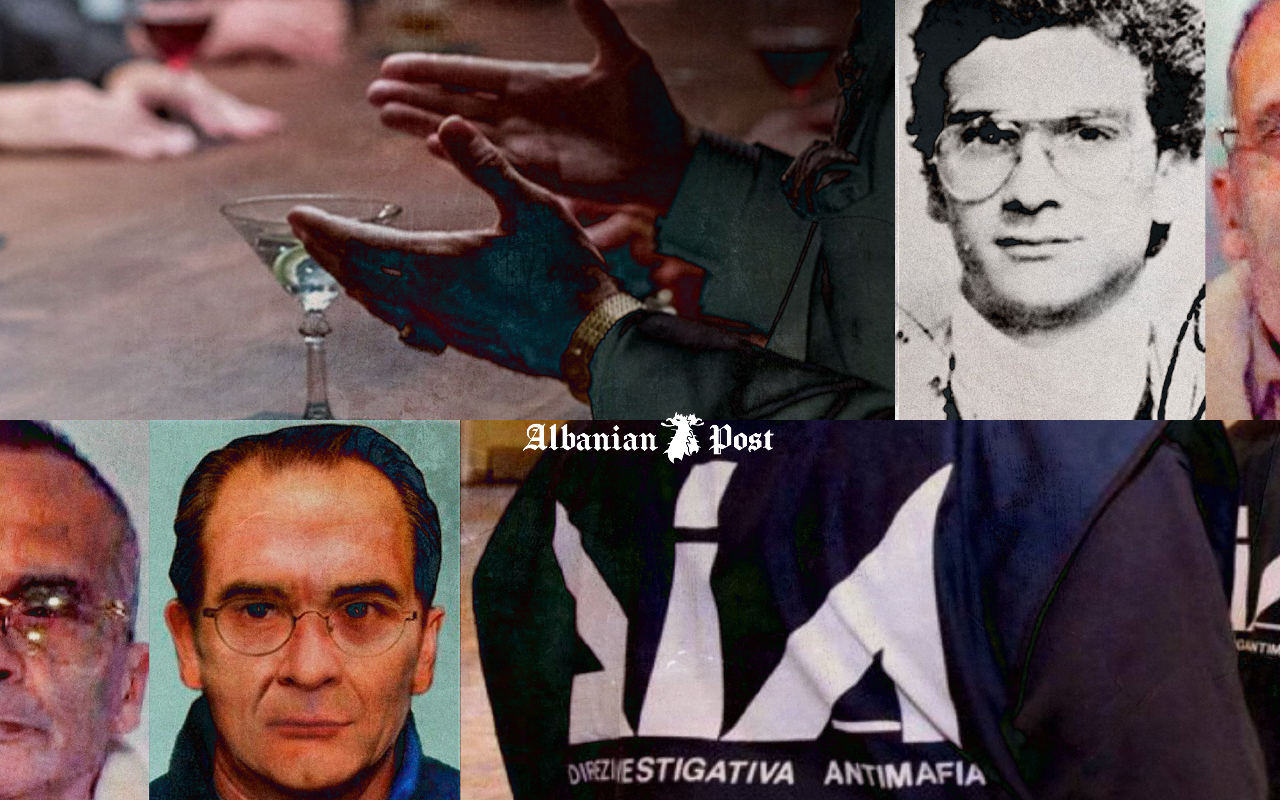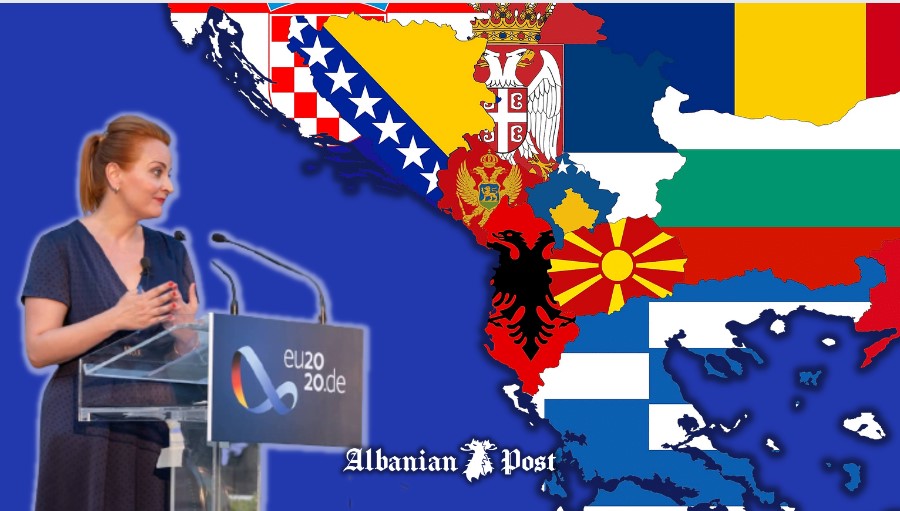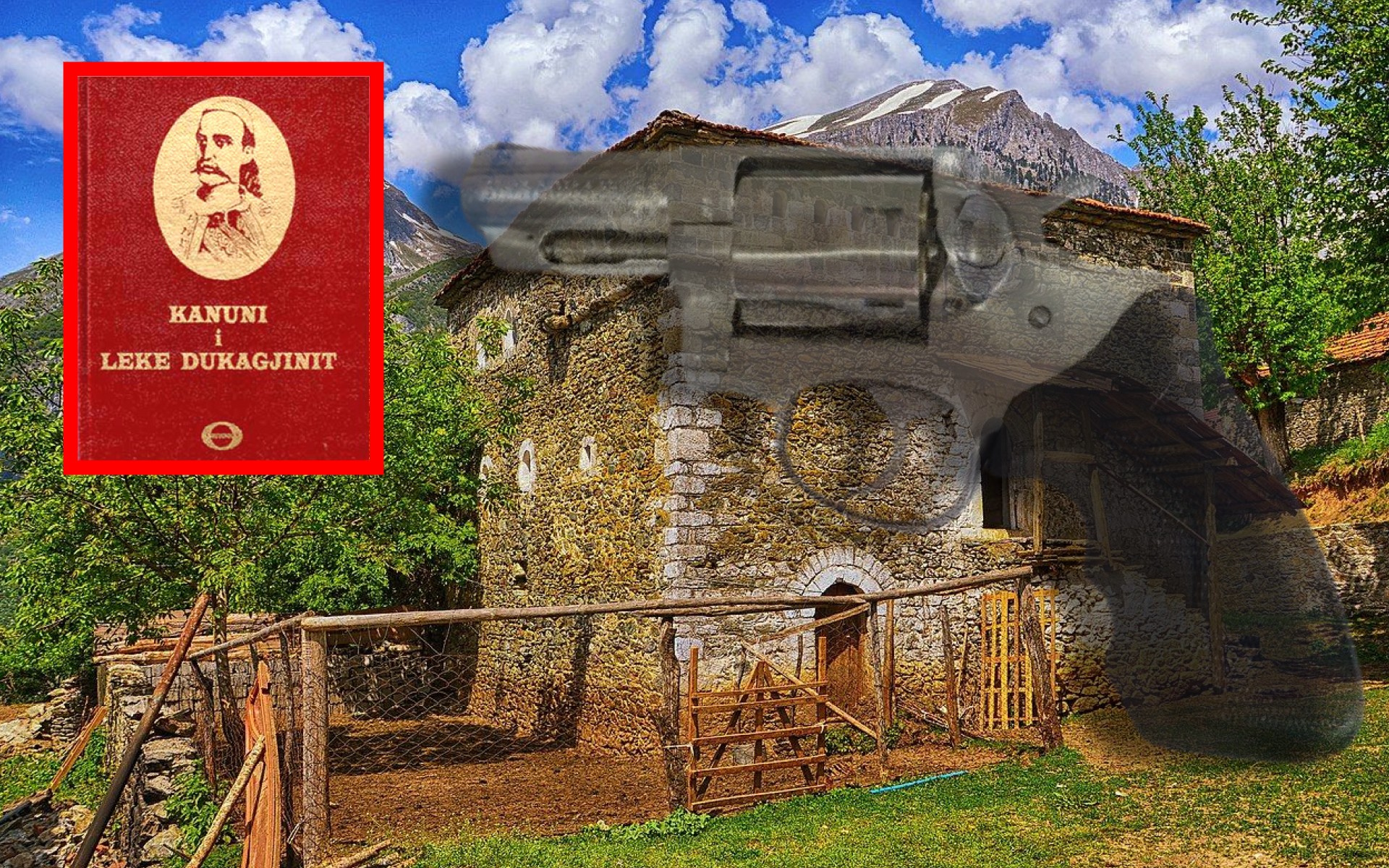“History will record that the KLA and the United States were partners in preventing a genocide,” exclusive interview with James Rubin
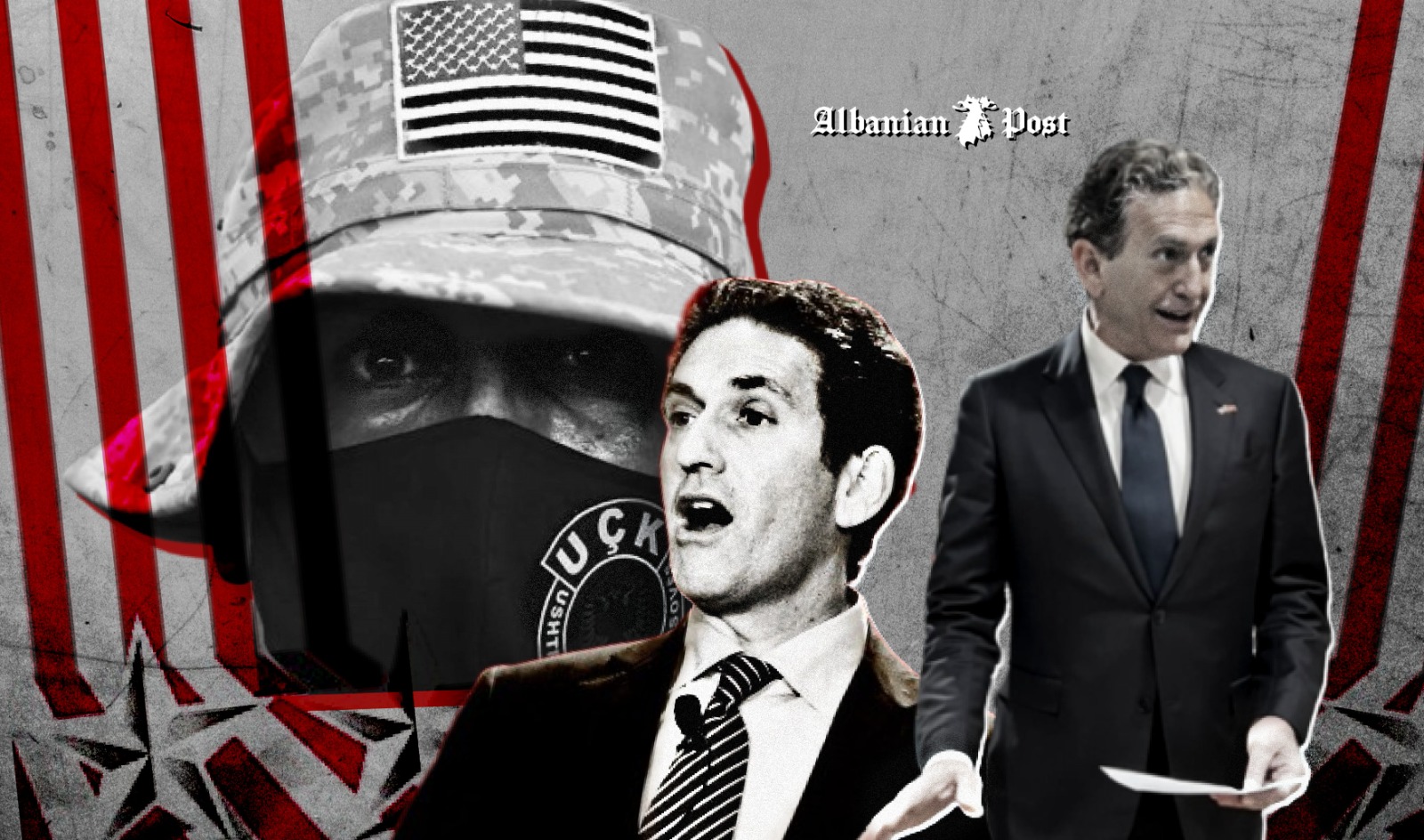
All that I was thinking on the way from Prishtina to Tirana was what the perfect question could be. I was offered to interview James Rubin, and of course, chances like this appear rarely for a journalist from Kosova – not say never.
Known as the “right hand” of Madeleine Albright, a former secretary of state during wartime in Kosovo and the main spokesman of the State Department, James Rubin was the Voice of the USA itself for Albanians.
What would the US do, would directly impact Albanians and what the US was about to do, it was James Rubin the one to say it. Thus, every time he spoke in 1999 everyone would freeze.
Beyond the importance of his political function, he himself is a journalist and highly skilled to detect a well-articulated question. Rubin distinguishes the genuine curiosity of a professional who constructs questions as concerns from the meaningless jargon of an amateur who creates closed-ended phrases.
I wanted to ask him about everything, and that’s why I would formulate long questions including the follow-ups. Then, I was aware that they might sound annoying and unclear and I would shorten them and then I was concerned that I was generalizing and that I wouldn’t be asking specific questions.
The whole almost 4-hour long journey went like this. All the way, I was lecturing myself on what is a good question and what is not.
When I arrived at the lobby of Hotel Plazza in Tirana and while we were preparing the interview equipment, I was notified that I had to wait for a bit longer as Mr. Rubin was with a friend.
As I could barely stand still, I asked one of the waiters if he knew at what part of the restaurant was James Rubin in at the moment. At least I wanted to make sure he was there for real.
The waiter gave me a strange look. “He is sitting on the terrace with Baton Haxhiu,” he said. I was interested in the interview, but Rubin was more interested in continuing his conversation with Baton.
They hadn’t seen each other in 11 years since the last time Rubin was in Kosovo. Rubin spent the whole time that was scheduled for the interview, and far beyond that, talking to Baton and smoking.
Then he told me that they’ve known each other for a lifetime, and they are like those friends who hardly see each other, but continue their conversations just where they left them off – even if that was 10 years ago.
James and Baton met during unforgettable times.
I also joined them at a moment when those special years were being revoked for both of them. When a friendship is formed during a time of war, revisiting the beginning of that friendship inevitably means revisiting the war itself.
However, two decades have passed, so much has shifted.
In the past, US launched an airstrike on Serbia, now the American ambassador to Serbia, Christopher Hill, issued an apology for that bombing.
This apology was also mentioned in the conversation.
From what Rubin said, I gather that Hill may have apologized, but “NATO’s actions ultimately saved countless lives, and prevented a potential genocide.” So Rubin told us, but asking that when we analyze what Hill says, we consider the context.
He himself added that he was “proud” of what happened.
“I was proud to work for Secretary Albright during this critical time,” said Rubin while smoking intensely, a trait that Baton pointed out he had always possessed.
Rubin proceeded to discuss his superior, Albright.
“Her leadership was instrumental in stopping the persecution of Kosovars and defeated Serb aggression.” said he.
Elaborating further that “Our policy towards Serbia-Kosovo was something I know then-Senator Biden also strongly supported.”
After talking about a vibrant Prishtina, about a developed Kosovo, about Rubin’s satisfaction that today’s Kosovar reality fulfilled his prophecy of 20 years ago that Kosovo would develop, Baton shifted the conversation on to a less pleasant topic – the Special Court.
“I don’t want to get into the judicial question,” Rubin rushed to say, “but as far as the question of the KLA back in 1998/1999 is concerned, we regarded the KLA as our partner in the peace talks and Hashim Thaci represented the KLA.”
He states today, just as he did then, that he values that “Thaçi agreed to the Ramboulliet Accords.”
“It was a brave decision”, recalled Ruben, acknowledging that “he didn’t get everything he wanted, but he enabled the West to unite and prevent Serbian military forces from slaughtering thousands and thousands of Kosovars.”
At one point, Jimmy (as Batoni addressed him) stated that “I regarded our relationship with them as crucial to bringing peace, security, and stability to Kosovo.”
The United States and NATO may have had extraordinary power, however, “without their decisions and their partnership, that never would have happened.”
For Rubin, nothing can change this, not even a court accusing the KLA as a Joint criminal enterprise.
According to him, “history cannot be rewritten.” Because, as he said it more than once, “the history of that time is very clear.”
“Slobodan Milosevic and his cronies used his authority over the Serbian military forces to slaughter Kosovars and threaten to slaughter tens of thousands more of them.”
“Those are the facts,” said Rubin. This is the history.
And just before as he was about to light another cigarette, he stated “history will record that the KLA and the United States were partners in preventing a genocide.” Period.
The discussion broadened to various other topics, such as the normalization agreement between Kosovo and Serbia, as well as the risks posed by Russia and China – albeit in different forms, but with similar objectives.
Using Serbia as a satellite to spread “poisonous disinformation” designed for discord in the Balkans.
The war in Ukraine and the American focus. Attention to problematic third actors such as Iran, especially the cyber-attack on Albania.
I also wanted to ask him about all this, but time ran out. All the American ambassadors of the Balkans were waiting for him. They had a meeting together somewhere in Tirana later on the day.
“We can’t do the interview”, he said promising that “we will do it another day”.
“Jimmy always keeps his promises”, Batoni assured me.
And so he did.
The interview took place a few days later, but was conducted over the phone since Rubin had already returned to the US. He had just completed a lengthy visit to the Western Balkans in his new role for America – combating disinformation campaigns by Russia and China.
It worked well on my advantage as I had gained Rubin’s perspective during our previous conversation, in which I was more of an observer than a participant in the discussion. I asked him about all the topics that unfolded that day in Tirana, fully convinced that might not be able to provide official answers to all my questions over the phone.
Much to my surprise, James Rubin answered all.
Interview with James Rubin:
Albanian Post: Mr. Rubin, during the wartime in Kosovo you were Assistant Secretary of State for Public Affairs, and you were very much involved in the process. For your commitment and engagement Kosovo awarded you the “Presidential Medal of Merits”. You visited Kosovo shortly after a while and we would love to know what the overall impressions were concerning Kosovo’s state development and current situation in the country?
James Rubin: I was really pleased to see Pristina transformed into a thriving and modern city. Driving through the city, Pristina looks like any other European capital with its cafes, shops, and museums. I went to a local restaurant that served an all-organic menu and it was one of best meals I’ve had in recent memory.
The roads we drove on were smooth and wide. It’s quite a transformation from the 1990’s and a good measure of how quickly Kosovo has developed. It’s hard to see 20 years down the line, but even back then, I thought that if given the chance to thrive, Kosovars were always going to transform their country; now, it’s time to seize on that transformation and continue to be diligent about their accession into the EU and NATO.
Albanian Post: Lately, you were appointed as the Special Envoy and Coordinator for the U.S. Department of State’s Global Engagement Center. Your commitment is fighting disinformation deriving from China and Russia. As you might be familiar one of the Russian centers for spreading disinformation is Serbia. Recently there a branch of propagandistic media Russia Today was opened. Now we would like to know why Serbia was left out of your agenda during your visit to the Western Balkans?
James Rubin: As I repeatedly heard on my trip, Serbia is a hub for disinformation and information manipulation that is spread throughout the Balkans. The poison emanating from Serbia has both a Russia and China angle to it, and it is important that this is exposed. For example, while RT and Sputnik are no longer broadcasting in the EU and the US, they continue to spread lies in Serbia and by extension the region.
However, the purpose of my trip to the Western Balkans was to visit two young NATO partners that are trying to do their part, as responsible NATO members, to fight foreign information manipulation and disinformation within their countries and the region. We want to form a partnership with Montenegro, North Macedonia, and – even though it’s not yet a NATO member – Kosovo.
By working together with willing partners in the Western Balkans, we can lessen the effects of the disinformation coming from Serbia. Nonetheless, Serbia’s allowance of disinformation purveyors is something the US should push back on.
Albanian Post: US’s real concern is the Russian and Chinese influence in the region, but by fighting them, third parties might get involved like the case of Iran with cyber attacks in Albania. How will the US act in order to not lose attention in that regard?
James Rubin: It’s true that right now Russia’s invasion of Ukraine is a priority for the US. China’s malign influence globally, including in the Balkans, is also a priority. Unfortunately, there are other authoritarian actors in the world, and we must pay attention to them, including Iran. There is no alternative but to take all malign actions, including cyber-attacks, with the seriousness it deserves because whether it’s coming from Russia, China, Iran, or another authoritarian regime, their desired goal is to undermine the rules-based international order.
The most important thing we can do on our end – as Americans and as Albanians – is to work together as partners to try to protect our institutions.
Albanian Post: On the 27th of February Kosovo and Serbia reached an agreement for the normalization of relations while on the 18th of March they agreed to the implementation annex including steps. What are your thoughts on the agreement – does this agreement has the potential to normalize the relations between the two countries and do you believe it will be implemented as agreed?
James Rubin: The fact that an agreement was reached is a positive step. We commend President Vucic and Prime Minister Kurti for making tough decisions to reach this agreement. Now, they will have to make even tougher decisions to fulfill their obligations under the Basic Agreement that will secure significant opportunities for the people of both countries and accelerate their paths to European Union membership. Implementation is the critical piece. This is the standard by which the success of the deal will be judged.
Albanian Post: Serbia’s bombing from NATO happened after the Serbian party refused to sign the Ramboulliet Agreement and continued genocide in Kosovo and persecution of Kosovo Albanians from their homes to conduct ethnic cleansing. But on the anniversary of the bombardments this 24th of March, the American Ambassador in Serbia, Chris Hill, apologized to the Serbian people. Why should NATO apologize for an action that resulted in peace and ending the armed conflict, respectively war?
James Rubin: I am aware that Ambassador Hill apparently expressed such sentiments on Twitter in March. But context is important. Speaking for the US at that time, we believed that NATO’s actions ultimately saved countless lives, and prevented a potential genocide. I was proud to work for Secretary Albright during this critical time. Her leadership was instrumental in stopping the persecution of Kosovars and defeated Serb aggression. Our policy towards Serbia-Kosovo was something I know then-Senator Biden also strongly supported. It’s also important to note that Serbia’s leadership at the time chose not to sign the agreement – and that’s something they would have to explain as to why they chose that route because signing the Ramboulliet Agreement would have given them a greater role in Kosovo than they have now.
Albanian Post: During the last war in Kosovo, NATO’s partner was Kosovo Liberation Army. Currently, the leaders of the KLA are being accused of “Joint Criminal Enterprise”, and the Prosecutor’s Office accuses them of having criminal intent with the KLA against political opponents. The lawyer of one of the accused stated in front of the Prosecutor’s Office that if the KLA was a joint criminal enterprise, then NATO supported this enterprise. Considering that you were quite familiar with the situation at the time, what was the KLA for you in 1998/99?
James Rubin: I don’t want to get into the judicial question, but as far as the question of the KLA back in 1998/1999 is concerned, we regarded the KLA as our partner in the peace talks and Hashim Tachi represented the KLA. Tachi agreed to the Ramboulliet Accords. It was a brave decision. He didn’t get everything he wanted, but he enabled the West to unite and prevent Serbian military forces from slaughtering thousands and thousands of Kosovars.
Later, Thaci followed through on his commitments to us by agreeing to demobilize the KLA – even after they had effectively won the war. They followed through on all the commitments they made to the United States. I regarded our relationship with them as crucial to bringing peace, security, and stability to Kosovo. Without their decisions and their partnership, that never would have happened.
Albanian Post: Publications in various prestigious media for example The Guardian, wrote that the functioning of the Special Chambers and the history of the war is being rewritten – despite the final decisions or court verdicts on the accused, is the history being rewritten?
James Rubin: I won’t comment on a judicial proceeding, but I don’t think history can be rewritten. The history of that time is very clear. Slobodan Milosevic and his cronies used his authority over the Serbian military forces to slaughter Kosovars and threaten to slaughter tens of thousands more of them. Those are the facts.
Is it true that in a wartime situation, Kosovar individuals may have committed acts that the United States can’t support? Of course, that’s true; but that pales in comparison to what was happening at that time by Milosevic’s oppression policies towards Kosovo Albanians and that’s something that cannot be rewritten. NATO intervened to protect the Kosovars from a Serbian government-generated slaughter. I don’t believe that Milosevic spoke for all the Serbian people. There are many Serbians who rejected Milosevic then and now. History will record that the KLA and the United States were partners in preventing a genocide.
Last from the rubric
-
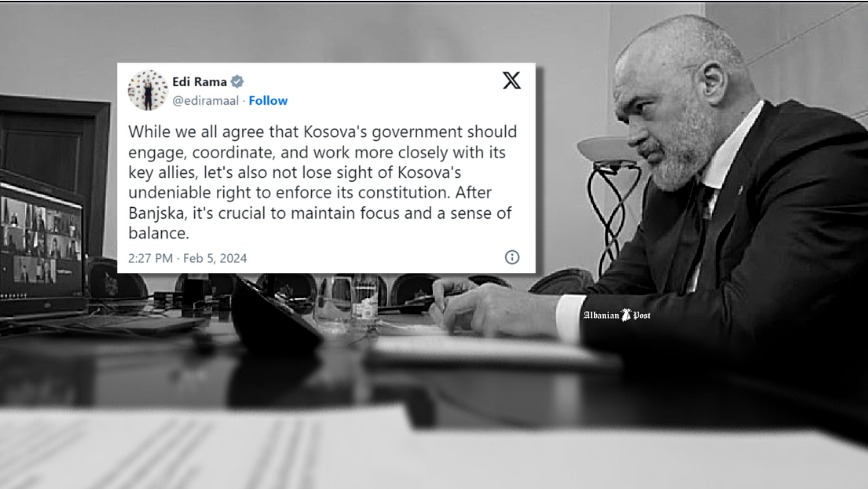
How should Edi Rama’s last tweet be read?
-
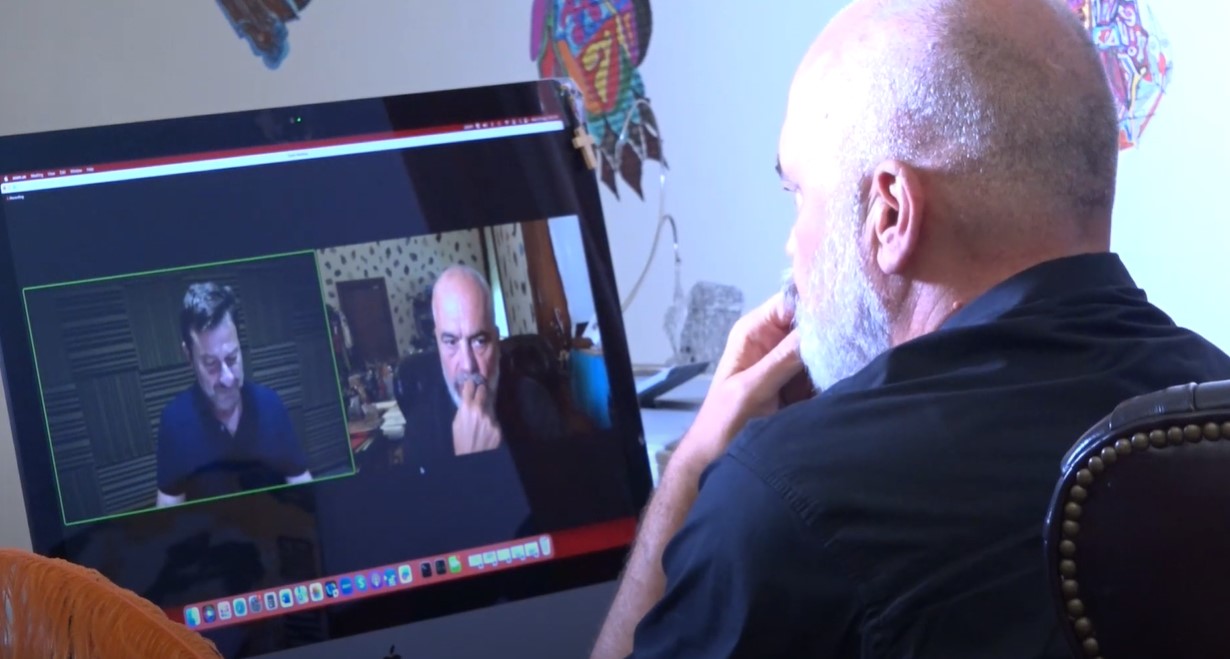
Rama confesses everything he knows about the Beleri case and shows the ‘fate’ he will have, in the exclusive for Kathimerini
-
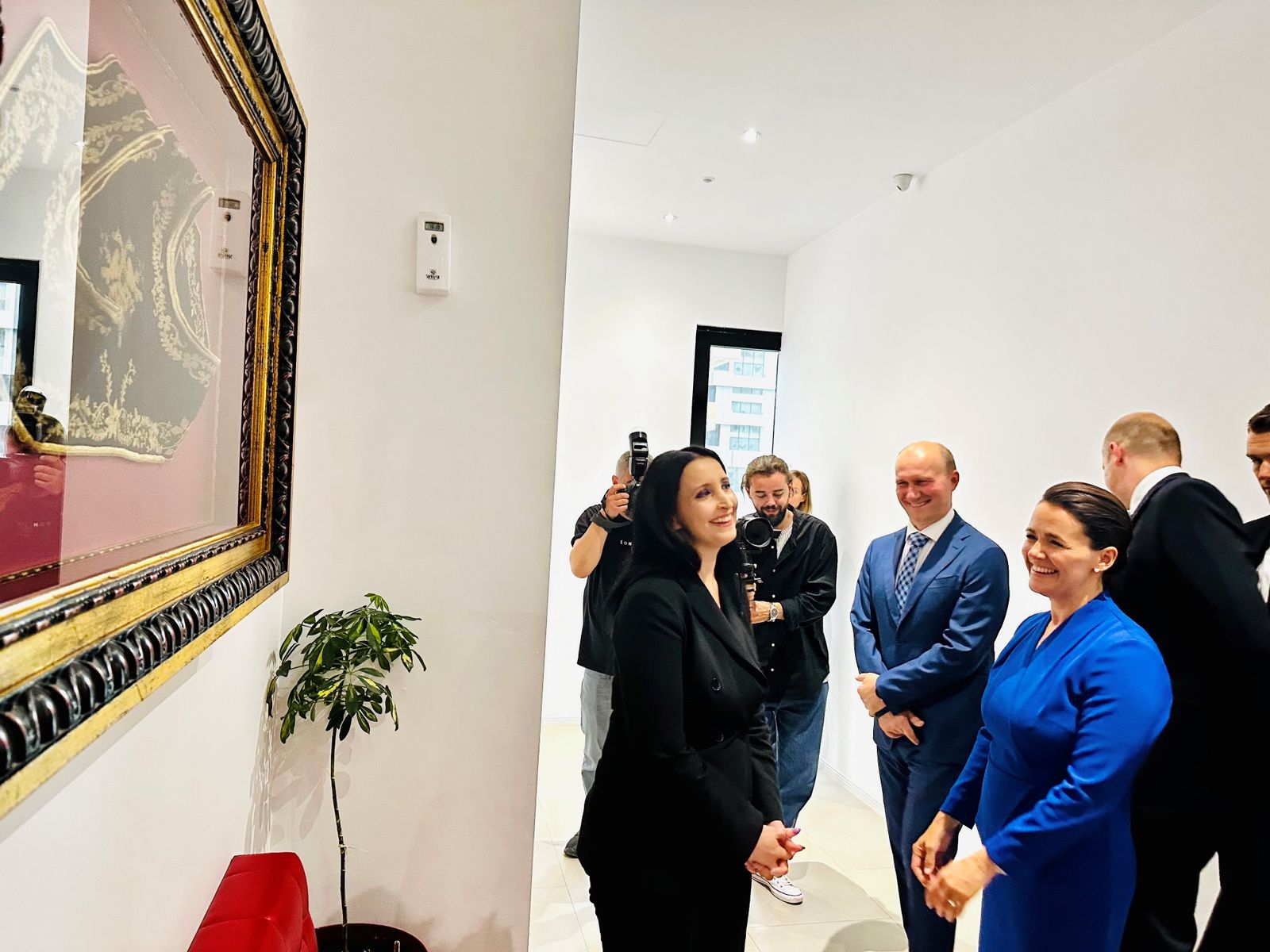
ONE Albania welcomes the President of Hungary, on a courtesy visit to the company headquarters in Tirana
-

“History will record that the KLA and the United States were partners in preventing a genocide,” exclusive interview with James Rubin
